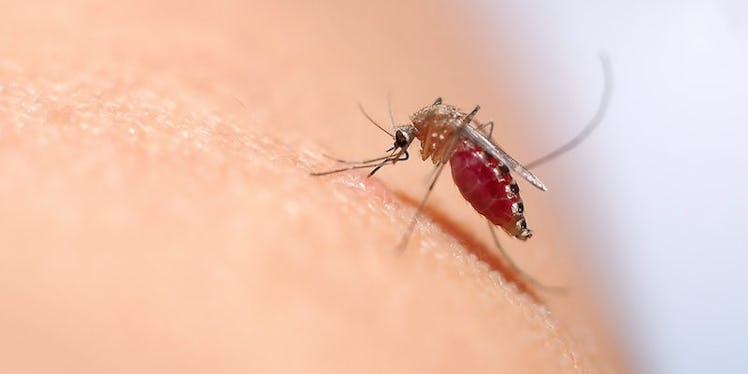
5 Surprising Impacts Climate Change Is Having On Human Health
Whether or not you are a believer, climate change is a reality. Countless lives will be lost if we don't make individual and systemic changes now. Often perceived solely as an environmental concern, climate change also poses serious health risks that can affect us in ways we may not fully realize yet.
A growing body of scientific research is building the evidence that shows the current and pending deleterious effects of climate change on our physical and mental health. Here are five ways rising global temperatures can impact our safety and well-being:
1. Mosquito-Borne Illnesses
By the end of the 21st century, the average global temperature will go up by at least 3.6 degrees Fahrenheit. Public health officials warn that high temperatures worldwide can allow mosquito breeding sites to flourish and expand. This means faster rates of spreading for infectious diseases like malaria, which causes millions of deaths annually, and Zika, which has been linked to thousands of babies born with microcephaly, a condition marked by an abnormal smallness of the head.
Other potentially deadly infections that can spread with warmer temperatures and increased rainfall include water-borne diseases such as dengue fever and cholera.
2. Heat Strokes
In the summer of 2015, more than 800 people died due to heat strokes in Pakistan where temperatures rose to a record high of 113 degrees Fahrenheit. Here in the United States, heat strokes are a leading cause of death and disability among teens. Characterized by the overheating of vital organs and extreme dehydration, heat strokes can also cause permanent brain damage.
Data from 1979 to 2012 shows heat waves have increased globally. Often, the people who come from impoverished communities with little access to air conditioning and quality water are at most risk of its deadly potential.
3. Respiratory Problems
Have your allergies or asthma been flaring up more than usual lately? You are not alone. Over the past several decades, asthma diagnoses have risen in the United States. Between 2001 and 2009, asthma cases increased by 4.3 million, according to CDC data. The culprit? Many public health experts say climate change.
Scientists say that because of mercurial patterns in weather and seasons, plants not only release pollen earlier in the year, but they also release them in larger amounts and for longer periods of time. Asthma attacks and allergies are triggered more easily as a result. Symptoms like congestion, headaches and sneezing tend to be more aggravated as well.
4. Heart Disease
Those who suffer from cardiac problems may not find it comforting to know that their symptoms may worsen as a consequence of climate change. In a 2015 study published in Cardiology, researchers discovered that “increased climate change-related heat exposure is associated with an increase in cardiac events.” Among the most vulnerable are elderly populations with pre-existing cardiac conditions.
Conversely, spells of extreme cold weather counterintuitively work in tandem with rising global temperatures. It can also exacerbate heart ailments, as it can expose those with heart problems to blood clots. To say that extreme weather conditions due to climate change is not for the faint of heart would be an understatement.
5. Mental Health
In addition to the impact of climate change on physical health, extreme weather conditions lead to natural disasters that can create traumatic experiences. As a 2015 research study noted, witnesses of hurricane floods, wildfires, tornadoes and other deadly natural disasters can often suffer from post-traumatic stress disorder, depression and anxiety.
Inconspicuous to many, the implications of rising global temperatures on our mental and physical health are often neglected in the national discourse on climate change. But more and more, scientists are making the case for these discussions. Hopefully, we will see world leaders frame climate change not only as an environmental and political issue, but also as a matter of physical and mental health.
When viewed from a public health lens, perhaps then we can take climate change more seriously. After all, our lives can only be as healthy as the planet we live in.